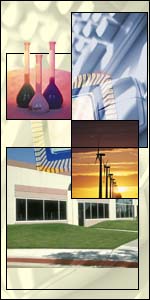|
The DEYNA model
is not meant to be an invariable and exhaustive guide of predetermined
tasks, which can be carried out one after the other, but a guiding
framework with objectives that are common to all regions, but can
be applied in accordance with the specific needs of each environment.
DEYNA technology is incredibly simple
and logical. These guidelines are:
- Natural Resources: these are
in essence public goods, as their state of preservation/degradation
directly affects everybody that consumes or produces products
derived from them. They must be considered capital goods and not
normal "inputs" which are consumed every cycle of the
productive process. All of the natural resources make up, therefore,
a real asset.
- Human Resources: these are also
considered capital goods (human capital) and not only a normal
"input" (work factor) which is consumed every cycle
of the productive process. All of the human resources make up
a fixed asset, which is susceptible
to depreciation (mainly through obsolescence), and its maintenance
requires a significant investment, principally in education and
training programs.
- Sustainable Development (Future
economic activities): a great part of secondary and tertiary productive
activity (industry and services) is based upon new technology
which is destined to prosper in the future, technology that does
not rely on the transformation of vast quantities of raw materials
in conjunction with great doses of manpower. In these new technologies,
small amounts of material "inputs" are used. These are
sophisticated and are produced by a small number of production
centres worldwide. They are combined with specialist knowledge
and know-how to obtain high value added
products or services, through small-scale production processes.
 The
competitive advantage of those companies which carry out these activities
lies mainly in the availability of that know-how. We are talking
about activities such as the following: The
competitive advantage of those companies which carry out these activities
lies mainly in the availability of that know-how. We are talking
about activities such as the following:
- Production of computer systems and applications
- Industrial design
- High value foodstuffs
- Handcrafts and restoration of traditional products
- Specialized publications
- Cultural tourism
- Quality teaching
- Recycling industries
- New non-polluting chemical products
- Electronics
- Cryogenic banks
- Germoplasm banks
- Education of children
- New technology applied to the environment
- Clean and renewable energy
- Biogenetics
- New packaging and detergents
- Purification and desalinization of water
- Replanting of untilled land
- Processing of agricultural and cattle waste
- Aquiculture, etc.
The main task of DEYNA
is sowing the seeds that ensure the implementation of the "Best
Practice" model. A potential for endogenous
development is sought, making Soria advantageously competitive
if compared to other alternative locations. These seeds are the
above-mentioned 'prongs' of the strategy, and other related activities,
which promote the ideas or recover traditional endogenous resources.

|



